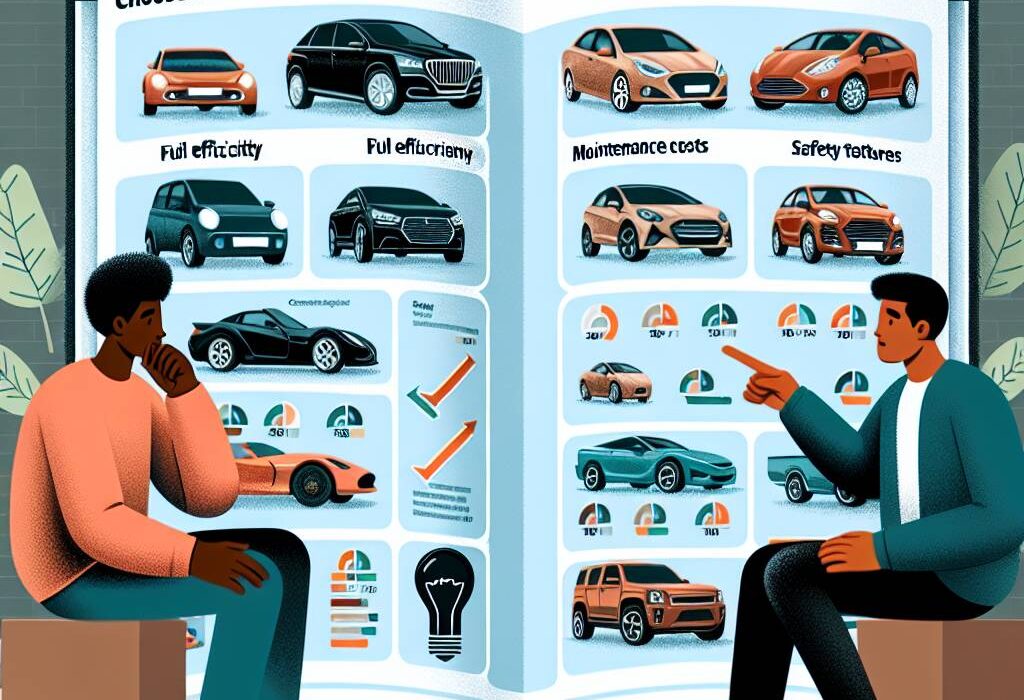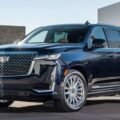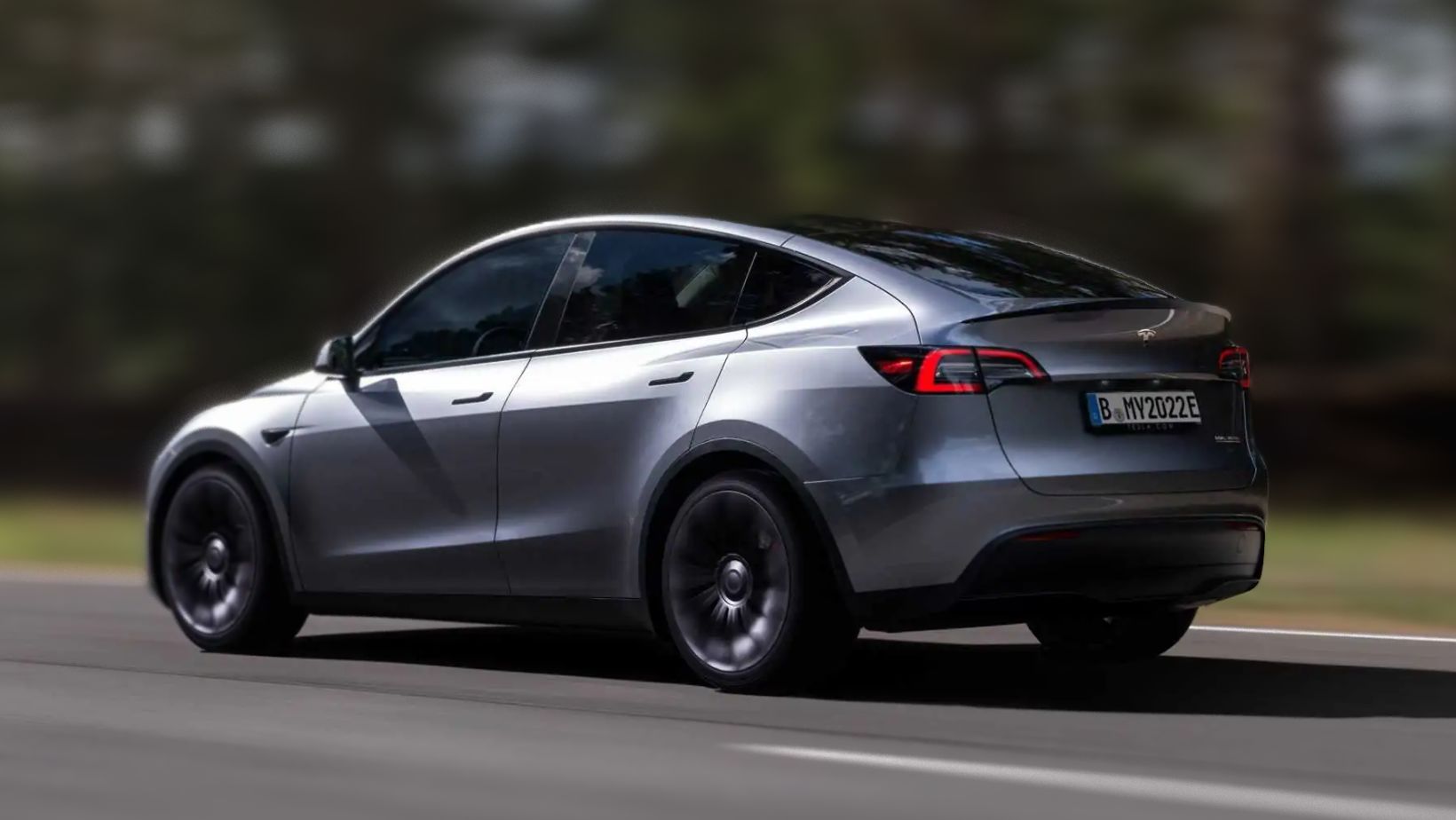Discover essential tips for choosing your first car, from understanding your budget to test driving and finalizing your purchase. Start your journey with confidence!Choosing your first car is an exciting yet daunting experience that requires careful consideration and planning. With so many options available, it’s essential to approach this journey with the right knowledge and strategies in place. Whether you’re a new driver or someone looking to reintegrate into the automotive scene, understanding your budget, identifying your needs, and researching reliable models are crucial steps to making an informed decision. This ultimate guide will walk you through the key aspects of selecting your ideal first car, from weighing the pros and cons of new versus used vehicles to tips for a successful test drive. By following this guide, you’ll navigate the car-buying process with confidence and ease, ensuring your first car is everything you need it to be. Let’s kickstart this journey together!
Understanding Your Budget For Choosing Your First Car
When it comes to choosing your first car, understanding your budget is essential. Not only does it help narrow down your options, but it also ensures that you don’t face financial strain once you make your purchase. Here are some key aspects to consider:
1. Determine Your Total Budget
Your total budget should include not only the price of the car but also other costs associated with ownership. Consider the following:
- Purchase price (new or used)
- Sales tax and registration fees
- Insurance costs
- Maintenance and repairs
- Fuel expenses
- Financing costs (if applicable)
2. Monthly Payments vs. Total Cost
If you’re opting for financing, calculate your monthly payments. Ensure they fit comfortably within your budget, ideally not exceeding 15% of your monthly income. Remember to evaluate the total cost over the life of the loan, including interest, to understand the full financial commitment.
3. Research Insurance Rates
Insurance can vary significantly between different car models and your personal driving history. Getting insurance quotes on a few selected vehicles will help you get a clearer picture of the ongoing costs associated with choosing your first car.
4. Consider Ownership Costs
Beyond the initial purchase, consider the long-term ownership costs. Research the average expenses related to the make and model you’re interested in, including:
- Routine maintenance
- Common repair issues
- Fuel efficiency
5. Set Aside an Emergency Fund
It’s wise to set aside some funds for unexpected repairs or maintenance that may arise after buying your car. A good rule of thumb is to save 10% of your car’s purchase price for emergency expenses.
By thoroughly understanding and planning your budget when choosing your first car, you’ll be better equipped to make a sound financial decision that fits your lifestyle and financial goals. Take your time, do your research, and ensure you are financially prepared for this exciting venture!
Identifying Your Needs And Preferences For A First Car
When it comes to choosing your first car, understanding your needs and preferences is crucial. This decision goes beyond just picking a vehicle; it involves assessing your lifestyle, comfort, and long-term goals. Here are some key factors to consider:
- Usage: Determine how you plan to use your car. Will it be primarily for commuting, leisure, or running errands? Your driving habits will significantly affect your choice.
- Passenger Capacity: Consider how many passengers you typically have. If you often drive with friends or family, opting for a spacious car like a sedan or an SUV might be ideal.
- Fuel Efficiency: Examine your daily commute and think about fuel expenses. A more fuel-efficient car can save you money in the long run.
- Safety Features: Look for models known for their safety. Essential features may include airbags, anti-lock brakes, and advanced driver assistance systems (ADAS).
- Technology and Comfort: Consider your preference for in-car technology such as navigation systems, Bluetooth connectivity, and comfortable seating. A car that aligns with your comfort level will make your driving experience more enjoyable.
- Style and Brand: Personal aesthetics matter! Choose a style and brand that resonate with you. This vehicle will represent your personality and interests.
By carefully evaluating these elements, you can narrow down your options and make a more informed decision when choosing your first car. This thoughtful consideration will lead to a choice that not only meets your current requirements but also adapts well to your future needs.
Researching Reliable Models Before Choosing Your First Car
When choosing your first car, researching reliable models is crucial for ensuring that you make an informed decision. The right car not only fits your budget but also serves you well over the years. Here are some steps to help you effectively research and identify the best car models:
- Read Reviews and Ratings: Look for expert reviews and consumer feedback on different car models. Websites like Edmunds, Kelley Blue Book, and Consumer Reports provide detailed insights into reliability, performance, and owner satisfaction.
- Consider Safety Ratings: Safety should be a top priority. Check crash test ratings from organizations like the National Highway Traffic Safety Administration (NHTSA) and the Insurance Institute for Highway Safety (IIHS) to find out how well a car performs in safety tests.
- Analyze the Cost of Ownership: Examine not only the purchase price but also the long-term costs associated with maintenance, insurance, and fuel efficiency. Tools like the 5-Year Cost to Own from Kelley Blue Book can provide valuable information.
- Look at Popular Reliable Brands: Some brands are known for their reliability. Research manufacturers that consistently rank high in reliability surveys, such as Toyota, Honda, and Subaru.
- Join Online Forums and Groups: Engaging with communities can provide personal insights and experiences that are invaluable. Platforms like Reddit or dedicated car forums often have discussions about various models that can offer a well-rounded perspective.
Making informed research decisions can significantly impact your experience when choosing your first car. By prioritizing reliability, you set the foundation for a positive ownership experience that can last for years to come.
New Vs. Used Cars: Making The Right Choice
When it comes to choosing your first car, one of the most significant decisions you’ll face is whether to buy a new or a used vehicle. Both options come with their unique pros and cons, so understanding them is essential to making the right choice for your situation.
New cars often come with the latest technology, safety features, and warranties, which can provide peace of mind to first-time buyers. The thrill of driving a brand-new vehicle can also enhance your overall experience. However, one key consideration is depreciation; new cars tend to lose value quickly, with about 20% of their value diminishing in the first year alone.
On the other hand, used cars typically offer a more budget-friendly option. You can often find high-quality vehicles that are just a year or two old at a significantly lower price point. Furthermore, since most of the depreciation has already occurred, you can get more value for your money. It is also important to point out that used cars can still come with warranties, depending on their age and condition, providing some level of coverage similar to new cars.
The decision between a new and a used car should take into account your financial situation, your comfort level with potential repairs for older models, and your long-term goals. If you’re prioritizing affordability and value, a used car may be the ideal choice. Conversely, if you desire the latest features and a worry-free ownership experience, a new car might be more suitable.
Regardless of your choice, ensure that it aligns with your needs and budget when choosing your first car. Take your time to weigh the advantages and disadvantages, and consider test driving options from both categories to see which one feels right for you.
Tips For Test Driving Cars When Choosing Your First Car
When choosing your first car, the test drive is a crucial step that allows you to experience how the vehicle feels and performs on the road. Here are some essential tips to help you make the most out of your test drive:
Taking the time to thoroughly test drive vehicles is essential when choosing your first car. Each car has its unique characteristics, and finding the right one for you should feel right both in terms of comfort and confidence on the road.
Finalizing The Purchase: Steps After Choosing Your First Car
Once you’ve made the decision and chosen your first car, it’s time to finalize the purchase. This stage is crucial, as it involves several key steps to ensure that you’re making a sound investment. Here’s a clear outline of what to do next:
- Gather Documentation: Make sure you have all necessary documents, including your driver’s license, proof of insurance, and any required identification ready for the dealership or seller.
- Review the Purchase Agreement: Thoroughly read the purchase agreement before signing. Look for any fees that may be added and ensure all details about the car (VIN, price, model) are accurate.
- Negotiate the Price: If you feel the price is still negotiable, don’t hesitate to discuss it. Being confident and informed can help in getting a better deal.
- Inspect The Car: Before finalizing, inspect the car one last time to ensure it is in the condition you expected. Look for any signs of previous damage and verify that all necessary repairs have been made.
- Understand Financing Options: If you are financing the car, understand the terms, interest rates, and monthly payments. Shop around for the best loan options if needed.
- Finalize the Payment: Once satisfied with all conditions, finalize the payment. Make sure to keep a receipt of the payment for your records.
- Transfer Ownership: If you’re purchasing from a private seller, ensure the title transfer is completed correctly. This is essential for legally owning the vehicle.
- Understand Registration and Taxes: Research how to register your new car and be aware of any taxes you might owe. Some states require this process to be completed before you can drive your vehicle home.
- Get Your Insurance Settled: Before you drive your new car off the lot, ensure that your insurance is in place to protect your investment.
- Take Delivery: Finally, take delivery of your new car. Make sure everything is satisfactory, and enjoy the experience of driving your first vehicle!
By carefully following these steps when choosing your first car, you can ensure a smooth and successful purchase that meets your needs and preferences.
Frequently Asked Questions
What are the key factors to consider when choosing your first car?
When choosing your first car, consider factors such as your budget, needs (commuting, space, etc.), fuel efficiency, reliability, and safety ratings.
Should I buy a new or used car for my first purchase?
It depends on your budget and personal preference. New cars often come with warranties and the latest features, while used cars are generally more affordable and can offer great value.
How can I determine my car budget?
To determine your car budget, assess your monthly income, consider your current expenses, and decide how much you can comfortably allocate for car payments, insurance, fuel, and maintenance.
What type of car is best for beginners?
For beginners, smaller sedans or hatchbacks are often recommended because they are easier to handle, more fuel-efficient, and generally less expensive to maintain.
What should I know about car insurance before buying a car?
Before buying a car, research different insurance rates based on the type of car you want. Younger drivers may face higher premiums, so it’s essential to factor that into your budget.
How important is a test drive when buying a car?
A test drive is crucial as it allows you to assess the comfort, handling, and overall feel of the car. It’s an opportunity to ensure the car meets your needs before making a purchase.
What resources can I use to research cars?
You can use online car review websites, consumer reports, reliability ratings, and forums to gather information about different car models and read user experiences.












